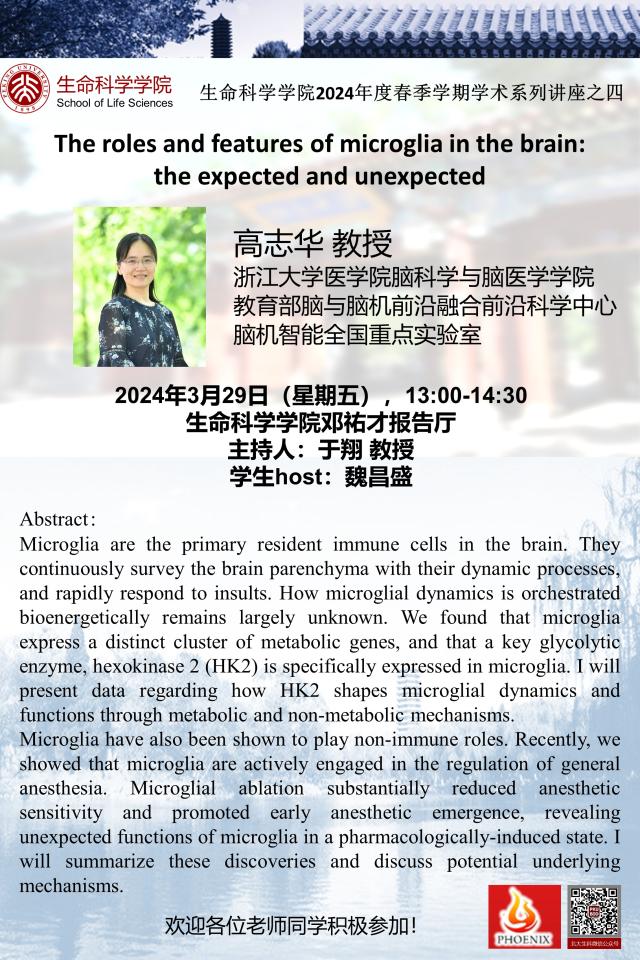题目: The roles and features of microglia in the brain: the expected and unexpected
时间: 3月29日(周五)13:00-14:30
地点: 生命科学学院邓祐才报告厅
主持: 于翔 教授
学生host: 魏昌盛
报告摘要
Microglia are the primary resident immune cells in the brain that help to maintain brain homeostasis and modify disease onset and progression. They continuously survey the brain parenchyma with their dynamic processes, and rapidly respond to brain insults. How microglial dynamics is orchestrated by bioenergetic and metabolic mechanisms remains largely unknown. We found that microglia possess a distinct cluster of metabolic genes and identified a key glycolytic enzyme, hexokinase 2 (HK2) specifically expressed in microglia. While HK2 is known to drive glycolysis in muscles to support rapid energy supply during exercise, I will present data regarding how HK2 shapes microglial dynamics and function through metabolic and non-metabolic mechanisms.
Despite their immune identity, microglia have also been shown to play non-immune roles in the brain. Recently, we have provided the first evidence that microglia are actively engaged in the regulation of general anesthesia (GA). GA is a reversible state of unconsciousness, analgesia, amnesia, and immobility induced by anesthetics. It is well-known that general anesthetics act on specific receptors or channels of neurons to generate such effects. However, we found that microglia are also actively engaged in the modulation of anesthesia. Microglial ablation substantially reduced anesthetic sensitivity and promoted early anesthetic emergence, revealing unexpected functions of microglia in a pharmacologically-induced state. I will summarize these discoveries and introduce potential mechanisms underlying the role of microglia in anesthesia.
